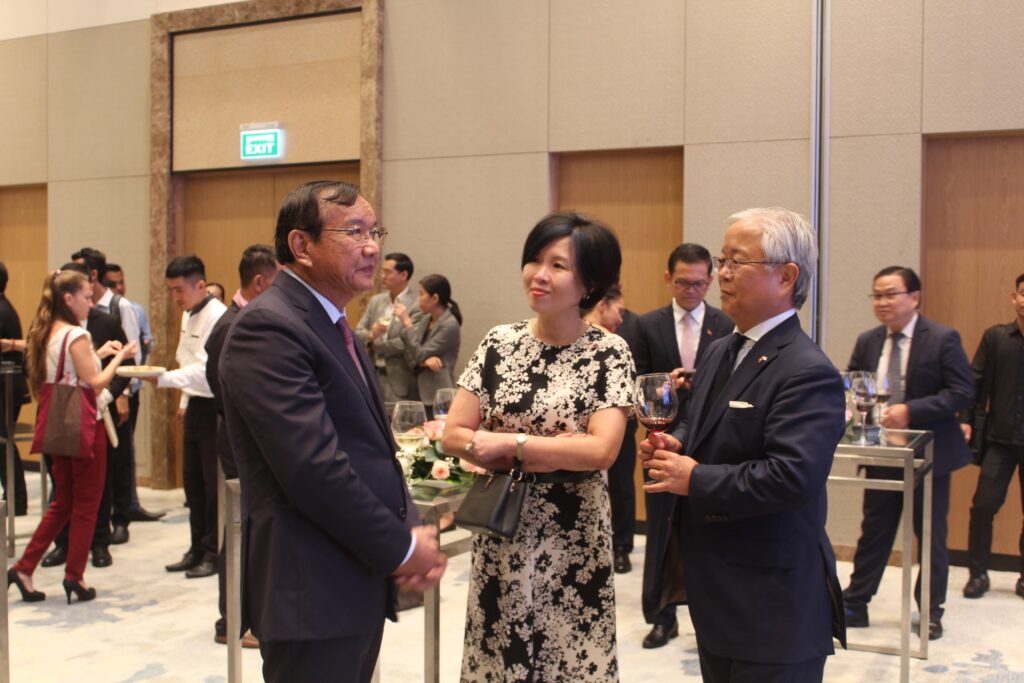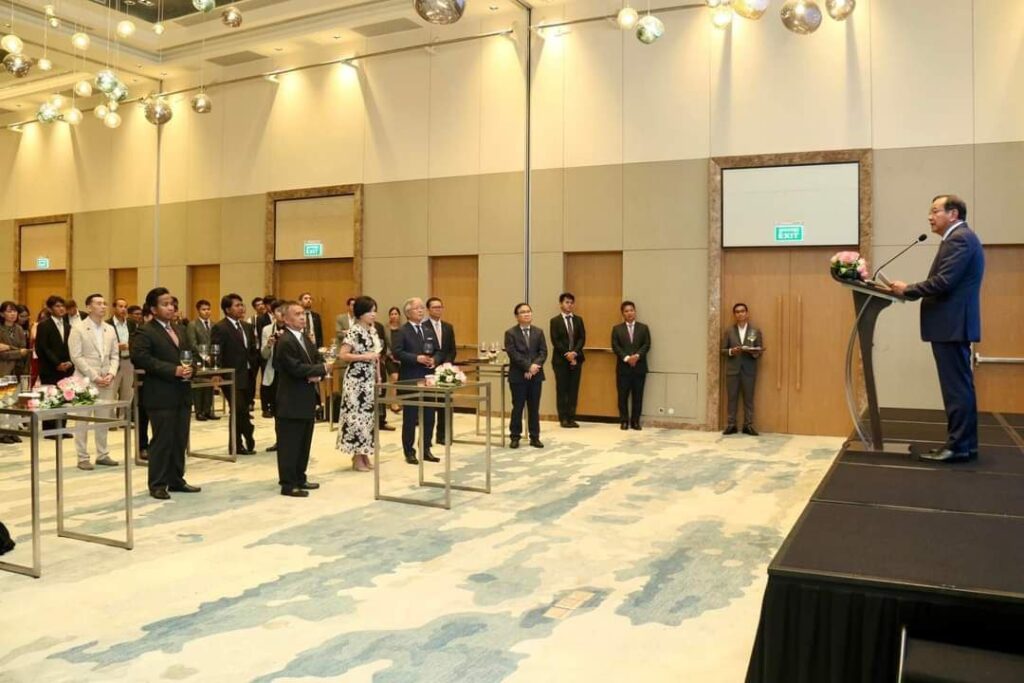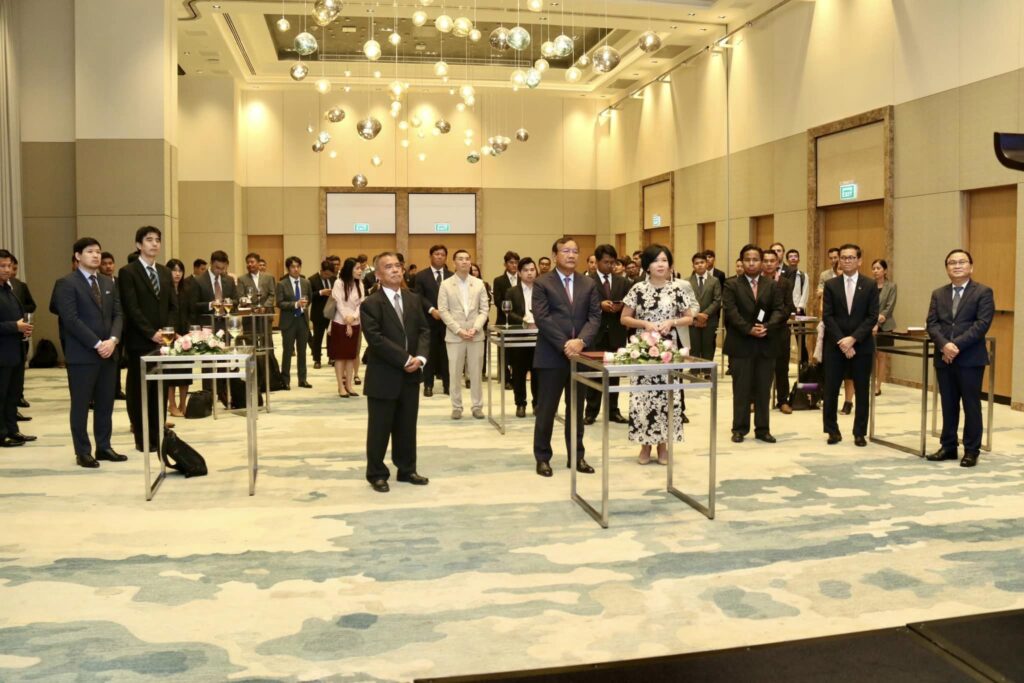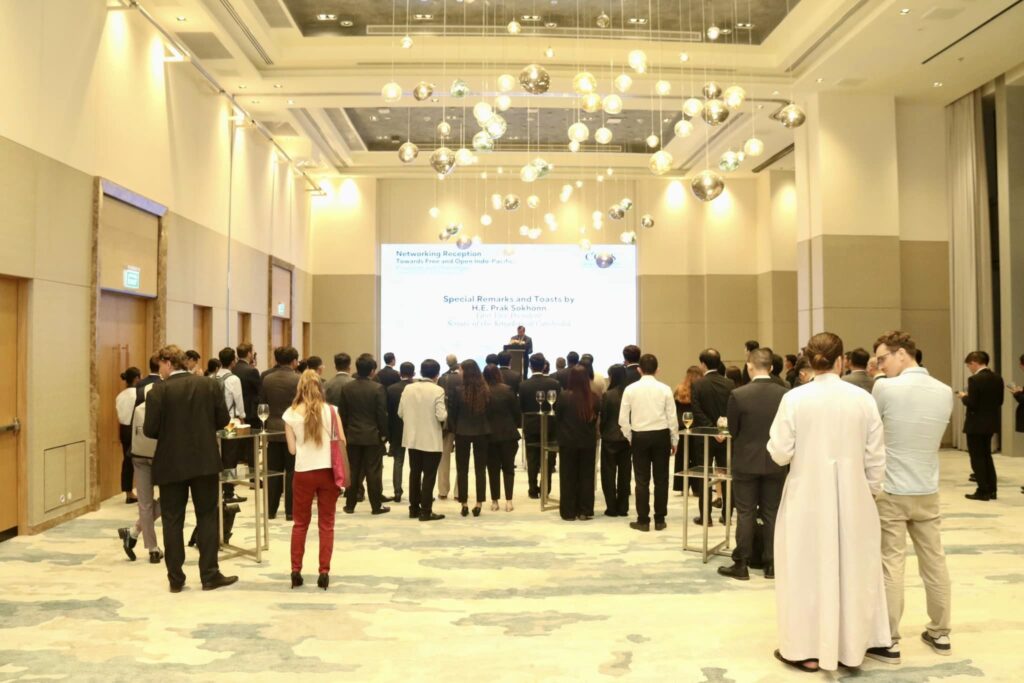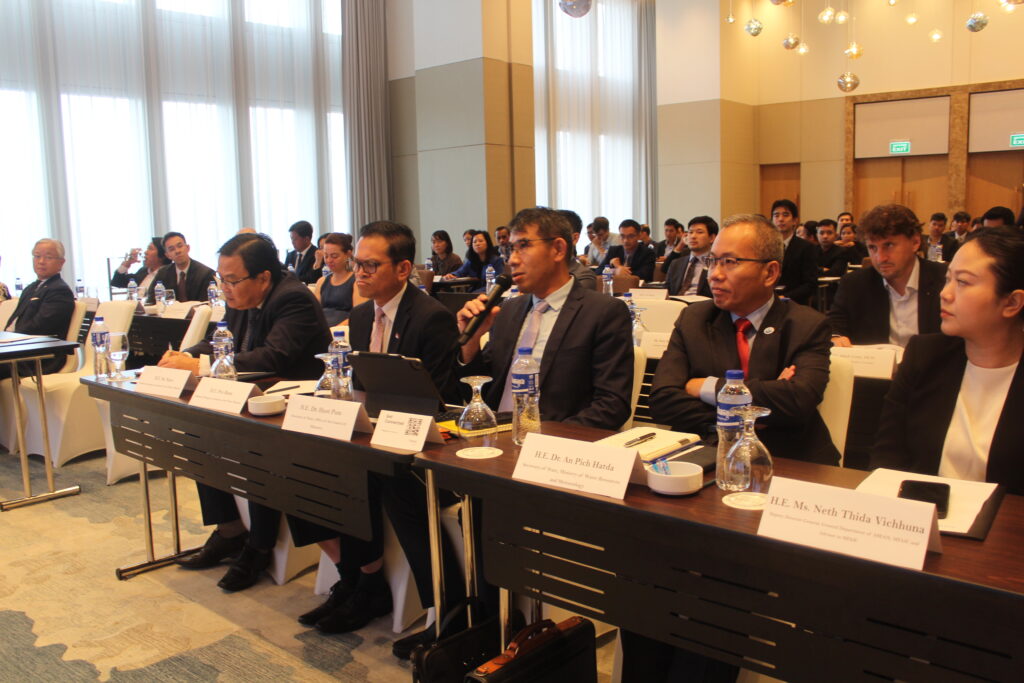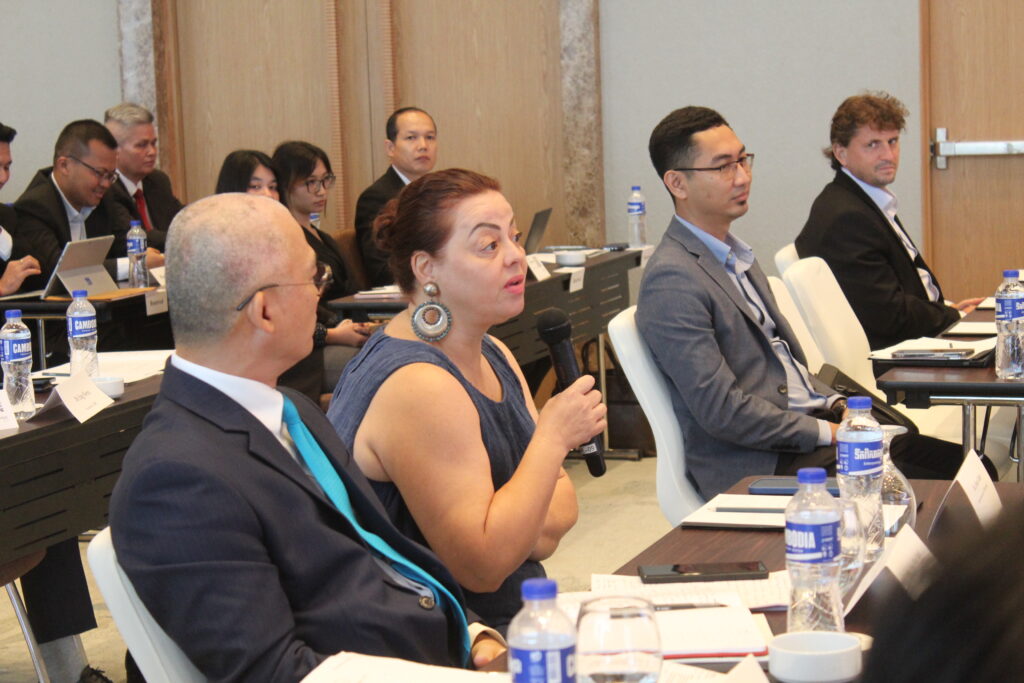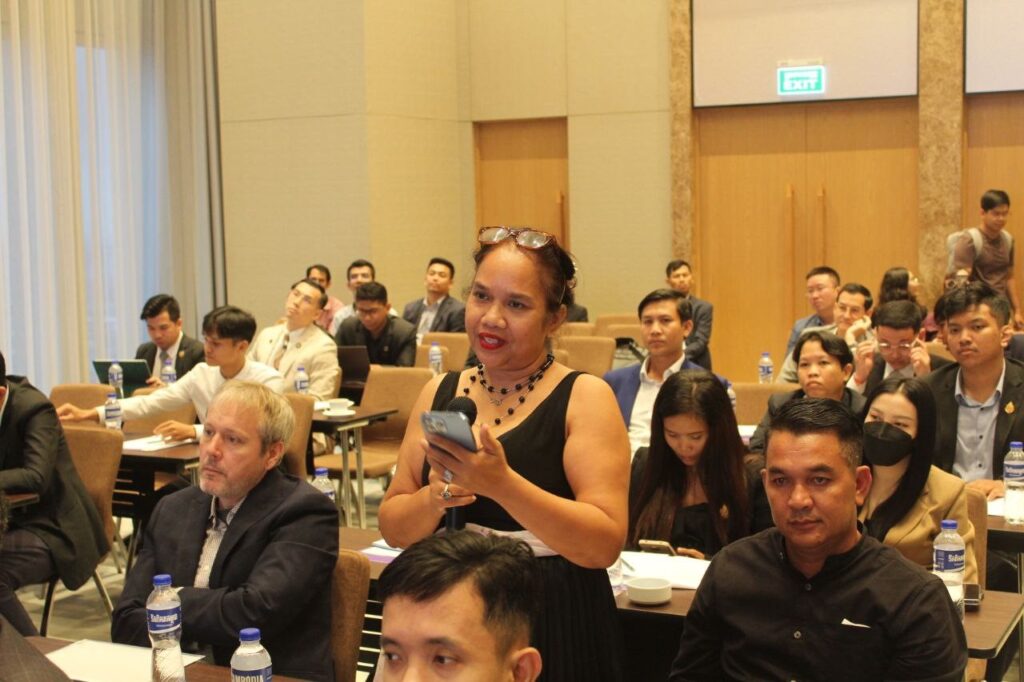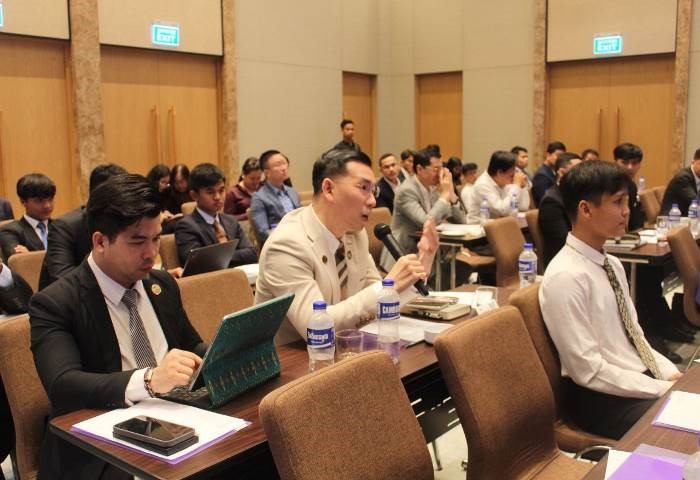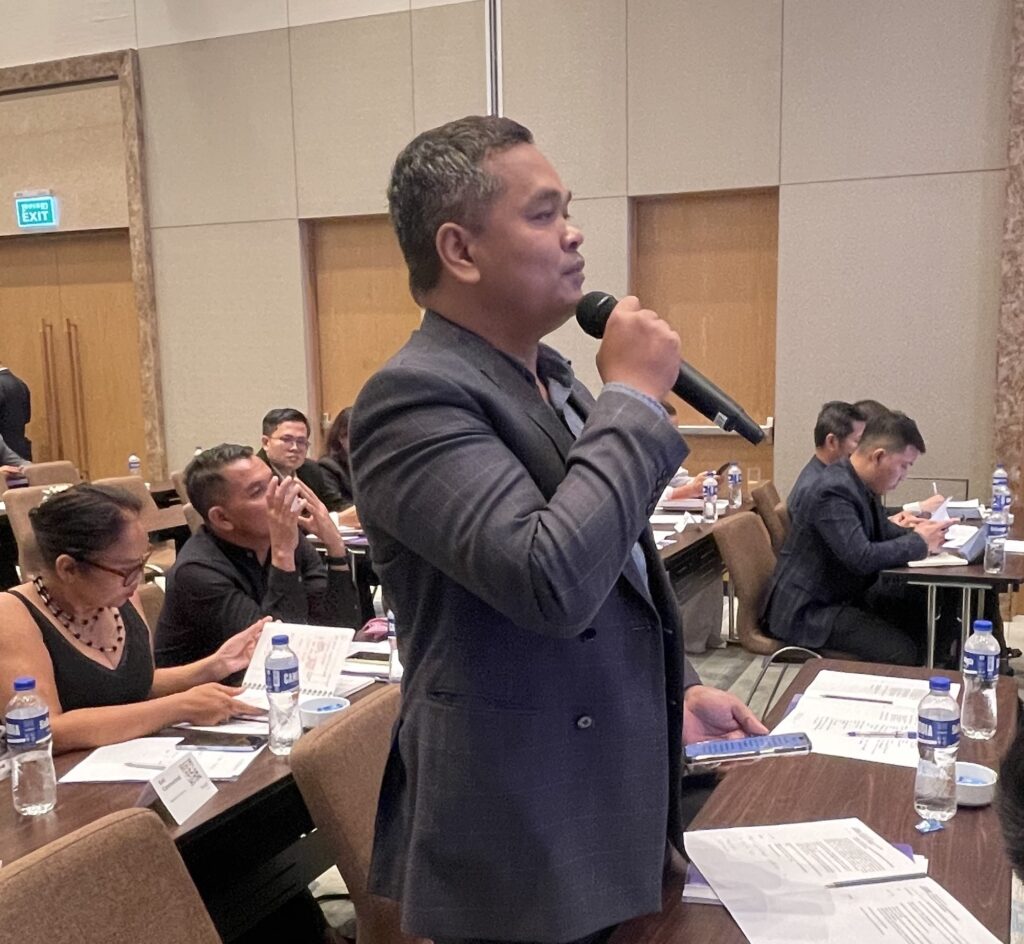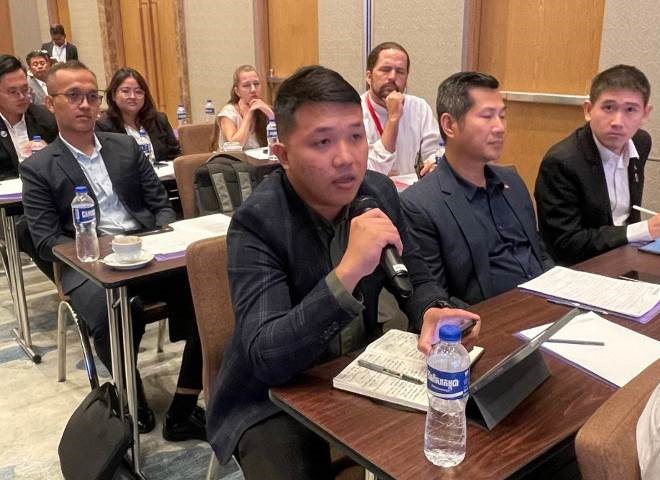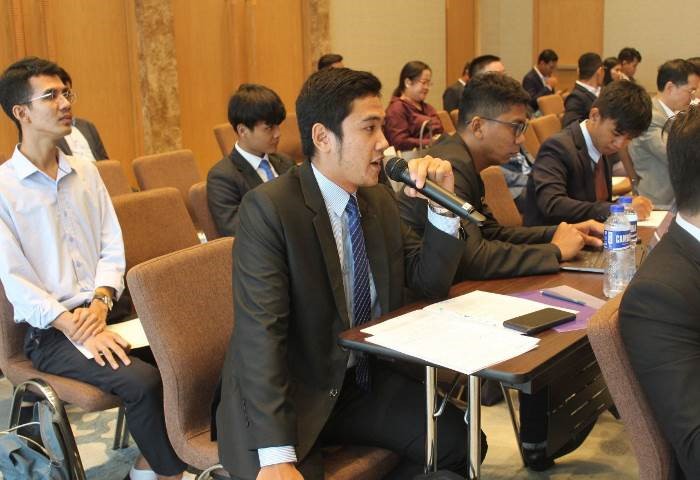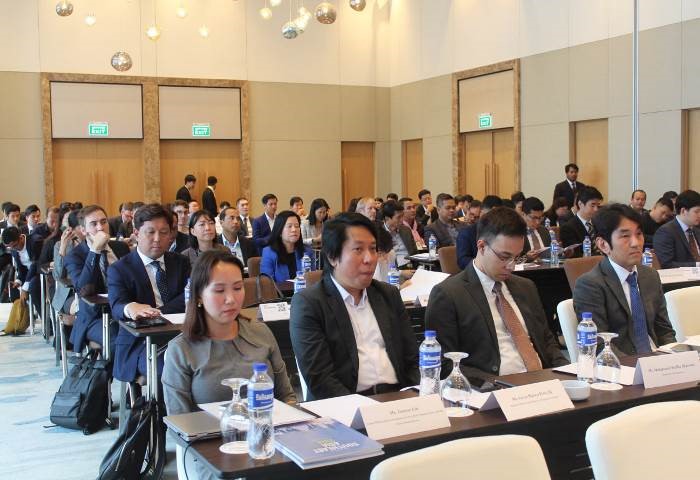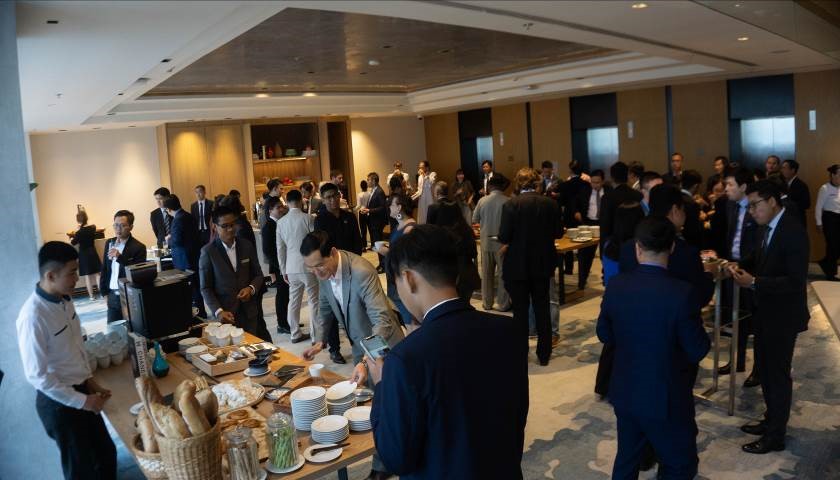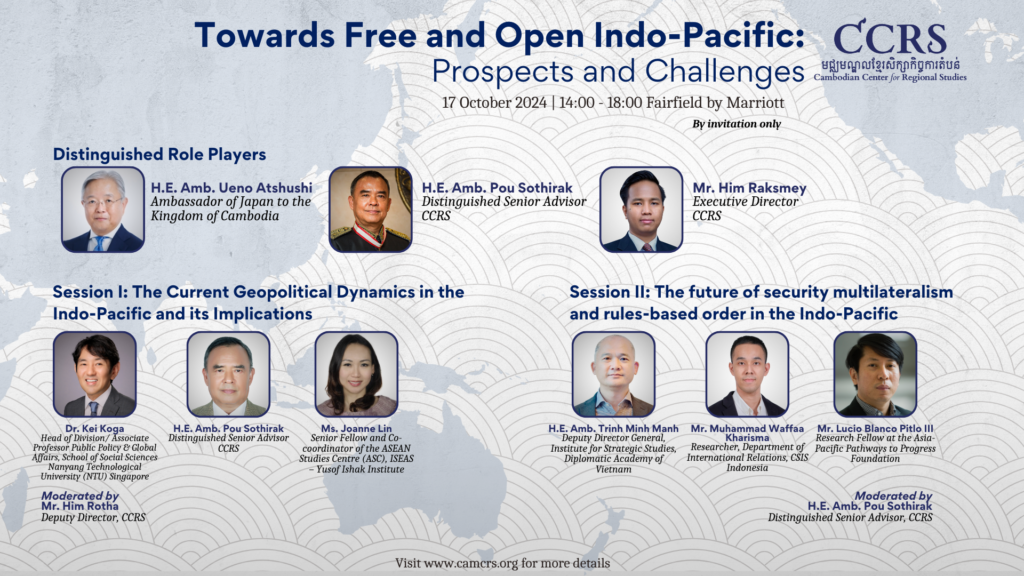
The Cambodian Center for Regional Studies (CCRS) organized a Regional Seminar on “Towards a Free and Open Indo-Pacific: Prospects and Challenges” on 17 October 2024, at Fairfield by Marriott Hotel Phnom Penh, to dive deep into the epicenter of the FOIP encompassing by the current unstable geopolitical and security environment of the Asia-Pacific. The event is supported by the Embassy of Japan in Cambodia.
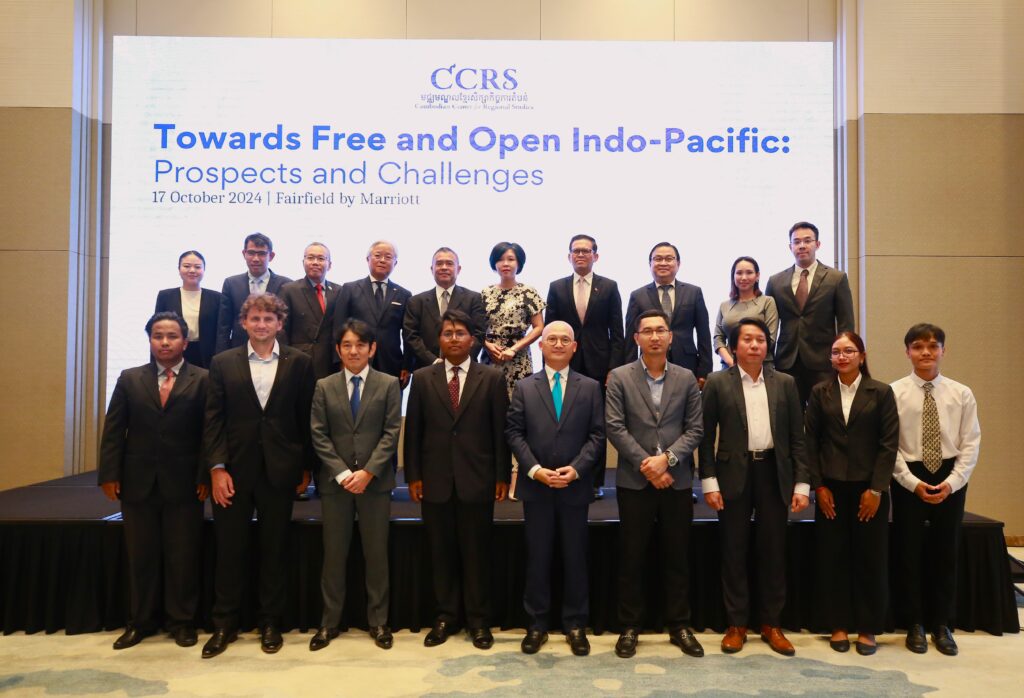
The regional seminar is organized against the background of a volatile geostrategic environment of the Indo-Pacific region, which call for a serious need for a revolutionary approach to peace and security to be developed into a kind of rule-based order by reenforcing existing multilateral framework to bring about a more predictable and constructive pattern of power relations among nations, especially among the powerful states, such the United States and China. The global community is now in dire need to work together collaboratively to reduce tensions, promote regional cooperation and creating a regional climate of friendliness conducive to a more stable global system based on international laws.
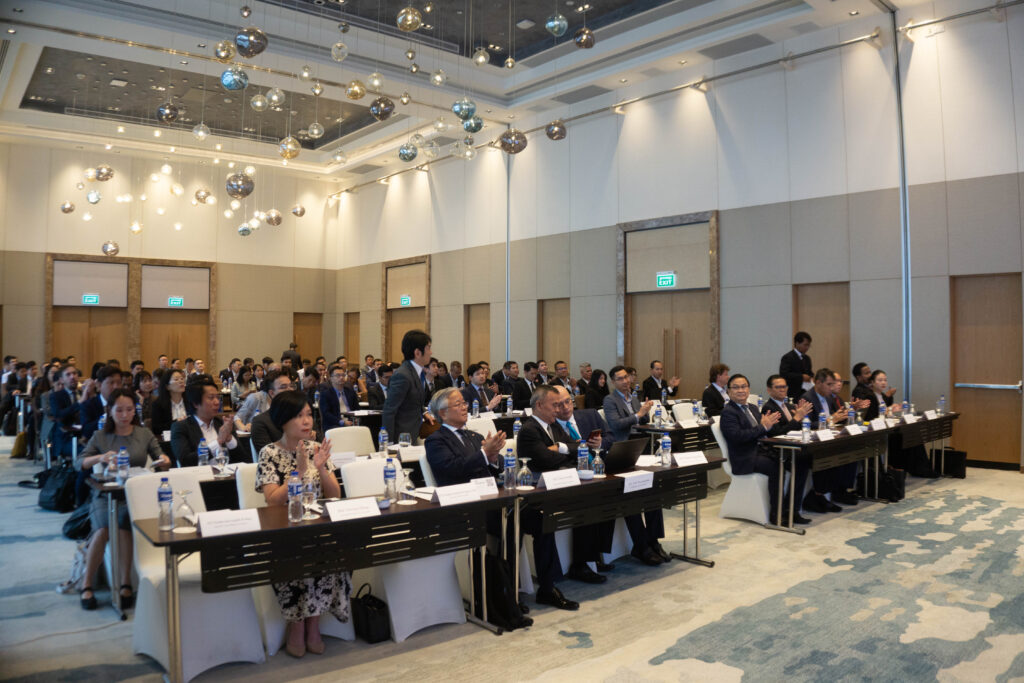
CCRS has been able to gathered regional experts, including scholars and officials from Japan, Cambodia, Indonesia, the Philippines, Singapore and Vietnam to share their perspectives on the current geopolitical dynamic in the Indo-Pacific and its implications, and the future of security multilateralism and rules-based order in the region. More than 100 participants from government to non-government institutions were invited to attend this seminar.
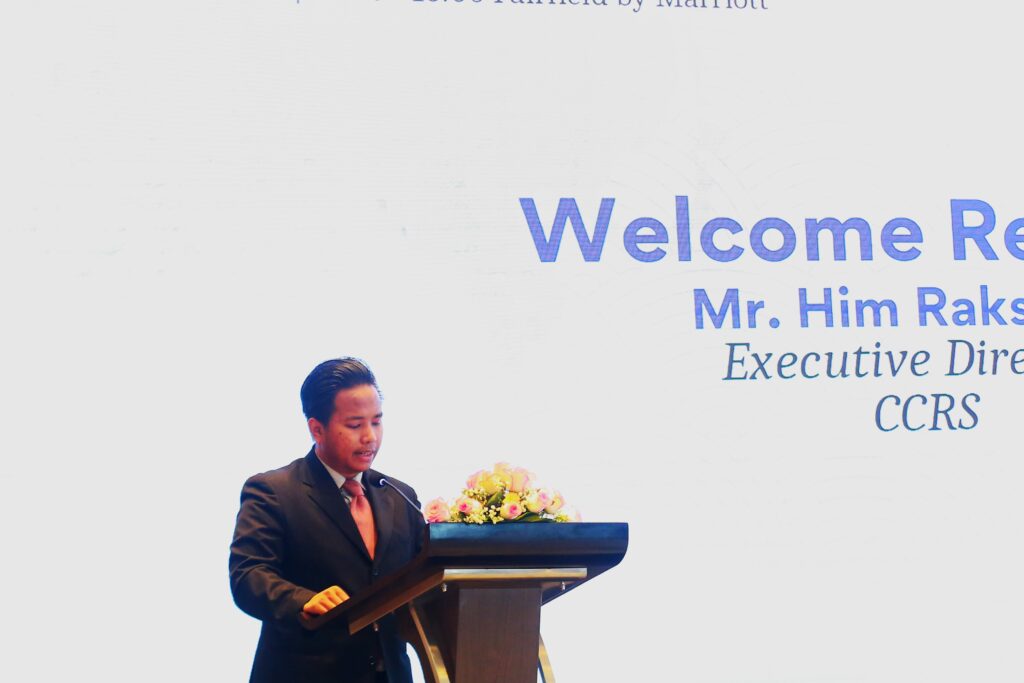
At the start of the program, Mr. Him Raksmey, Executive Director of CCRS, warmly welcomed all the distinguished participants and expressed appreciation to the Embassy of Japan in Cambodia for the kind support. He informed the audiences that the event aims to pounder three key questions: (1) what are the current geopolitical dynamics in the Indo-Pacific? (2) what is the regional vision of a free and open Indo-Pacific Strategy? (3) what will be the future of security multilateralism that can warrant rule-based order in the Indo-Pacific? The seminar comprises of two parts, Session 1 entitled “The Current Geopolitical Dynamics in the Indo-Pacific and its Implications” and the Session 2 under the sub-theme of “The future of security multilateralism and rules-based order in the Indo-Pacific”.
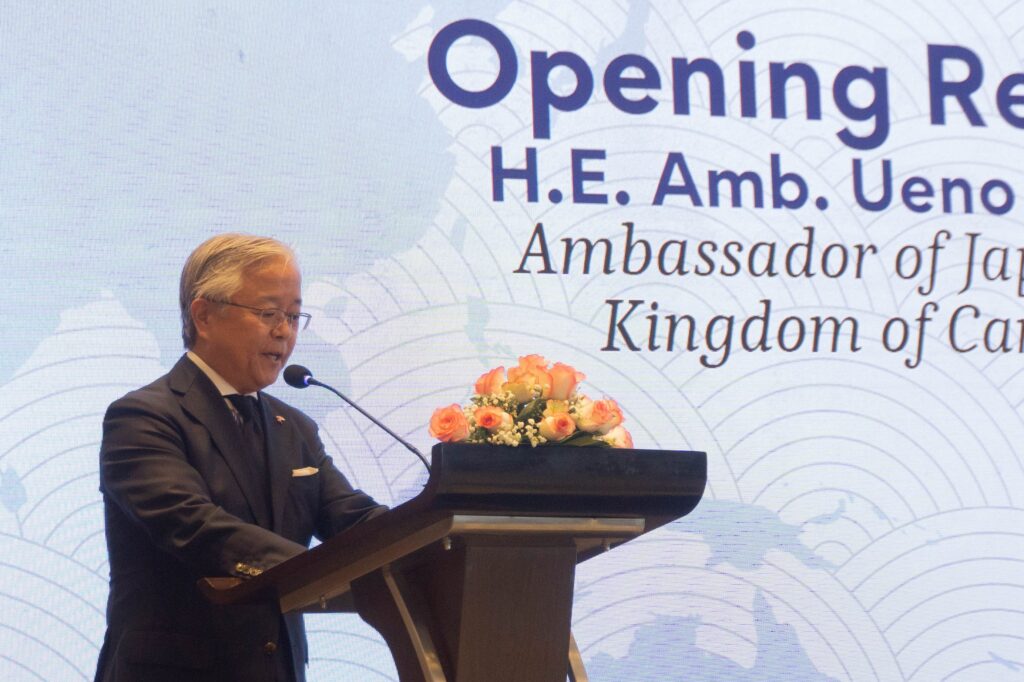
During the opening remarks, H.E. Ueno Atsushi, Ambassador of Japan to Cambodia, addressed the importance of a Free and Open Indo-Pacific. He recalled that the concept of the “Free and Open Indo-Pacific (FOIP)”, proposed by former Japanese Prime Minister ABE Shinzo in August 2016 is now gaining more traction with the core ideas compatible with the ASEAN Outlook on Indo-Pacific (AOIP). He emphasized that the FOIP vision is not targeted at, nor does it exclude, any particular country. The intention is to build peace and prosperity across the Indo-Pacific region, and here in Cambodia, through mutual cooperation among countries and regions that have shared values.
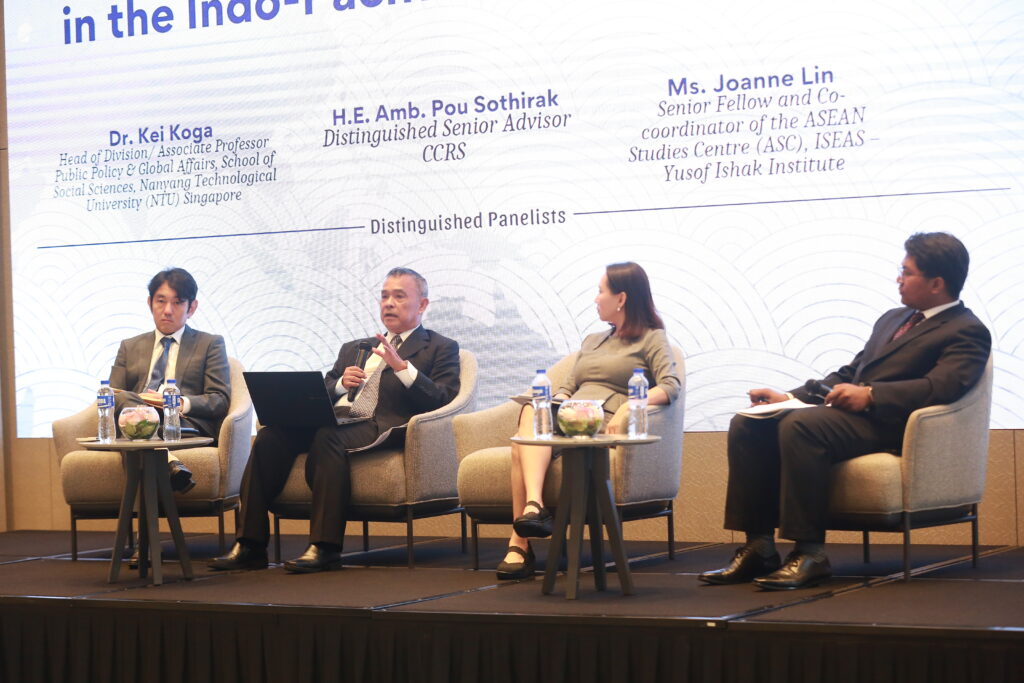
During the Session 1 entitled “The Current Geopolitical Dynamics in the Indo-Pacific and its Implications”, the focus of discussions was the context of the strategic environments in the Indo-Pacific which have been increasingly volatile and worrisome due to the intensification of US-China rivalry and other potential flashpoints. Navigation of the great power competition and tampering other security crises have become a top priority for many small and middle powers globally and regionally. The session was moderated by Mr. Him Rotha, CCRS’ Deputy Director, with three distinguished speakers; namely, Dr. Kei Koga, Amb. Pou Sothirak, and Ms. Joanne Lin who shared their perspectives on the ongoing strategic developments and changing regional dynamics in the Indo-Pacific and explore ways to strengthen rules-based order.
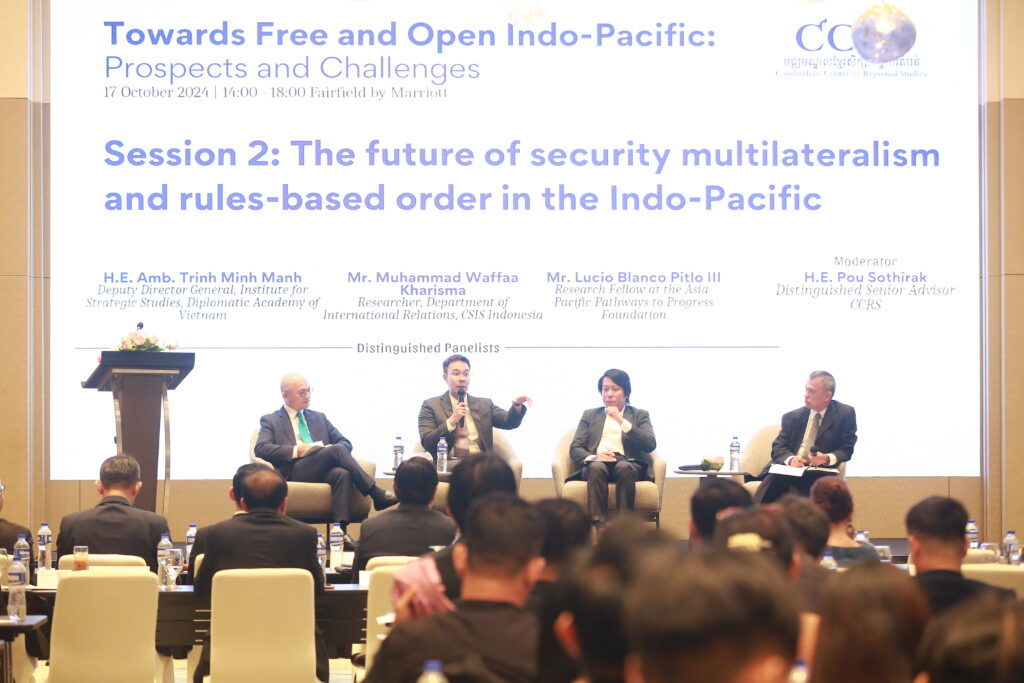
At the Session 2 under the sub-theme of “The future of security multilateralism and rules-based order in the Indo-Pacific”, the discussion was on the central question of what kind of security multilateralism could warrant the rules-based order in the Indo-Pacific amidst looming geostrategic competition and uncertainty. This session moderated by Amb. Pou Sothirak,
Distinguished Senior Advisor to CCRS, with three knowledgeable regional speakers – Amb. Trinh Minh Manh, Mr. Muhammad Waffaa Kharisma, and Mr. Lucio Lanco Pitlo III, who discussed competing views underscoring various minilateral and multilateral initiatives and assesses their performance about the relevance and changing contours of emerging economic and security architectures that undergird the overall effectiveness in securing rule-based order in the Indo-Pacific region.
At the end of the program, Amb. Pou Sothirak, Distinguished Senior Advisor to CCRS gave a concluding remarks, mentioning that all nations, especially the powerful ones, should collectively uphold internationally recognized rule-based order that promote collective norms, principles and practices of peaceful coexistence which rest upon the abiding principles of the international rule of laws that encompasses the fundamental respect for peaceful settlement of disputes, the respect territorial integrity and sovereignty, non-aggression, non-interference in internal affairs, and equality and mutual benefit. Japan and ASEAN definitely have a role to play to ensure peaceful coexistence which rejects power politics since the dawn of decolonization and advocates for principles that recognize the existence of all countries on an equal basis.
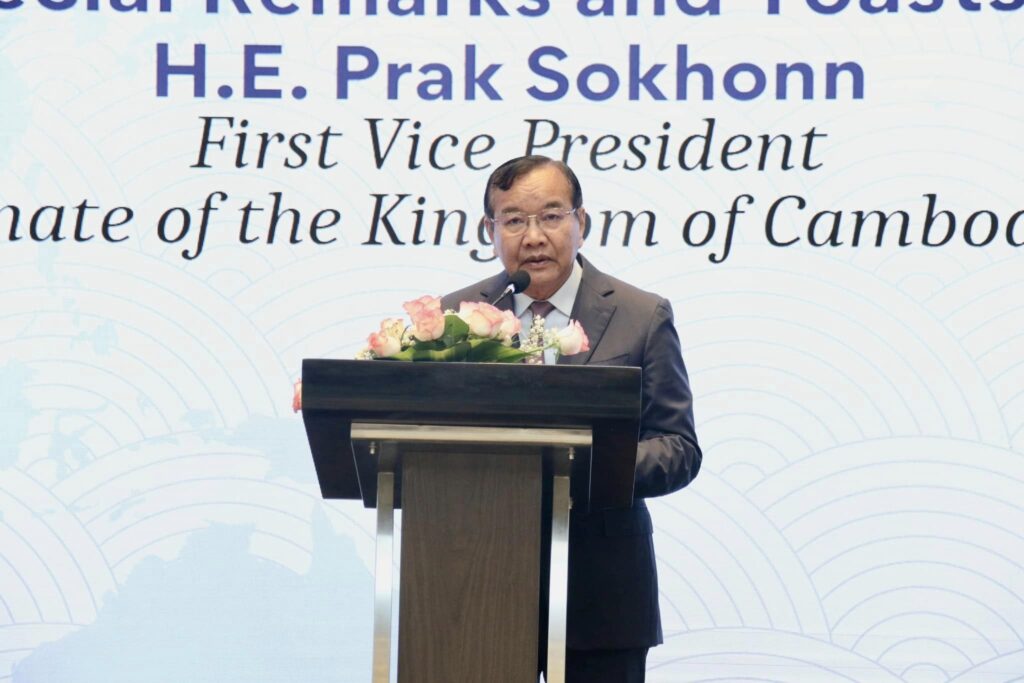
At the Networking Cocktail Reception toward the end of the Seminar, H.E. Prak Sokhonn, First Vice President of the Senate of the Kingdom was invited to deliver special remarks and toast. Our distinguished and honorable guest delivered a far-reaching message to all the participants. He highlighted that the rising geopolitical and geostrategic rivalries are now manifesting far exceed the political-security sphere and this trend is worrisome. The rise of minilateralism and blocs of like-minded countries, namely the QUAD, AUKUS, and other bilateral or trilateral alliances, all are creating profound transformations and for many years to come, will continue to be the theatre of fierce powers competition in the Indo-Pacific region. He recalled at the time Japan launched the “Free and Open Indo-Pacific Strategy”, Samdech Techo Hun Sen was the first Head of Government in Southeast Asia to express support for late Prime minister Abe’s initiative, on the understanding that the promotion of connectivity between the two Oceans, the promotion of peace, stability and cooperation for prosperity of the region as a whole are at the core of this strategy.
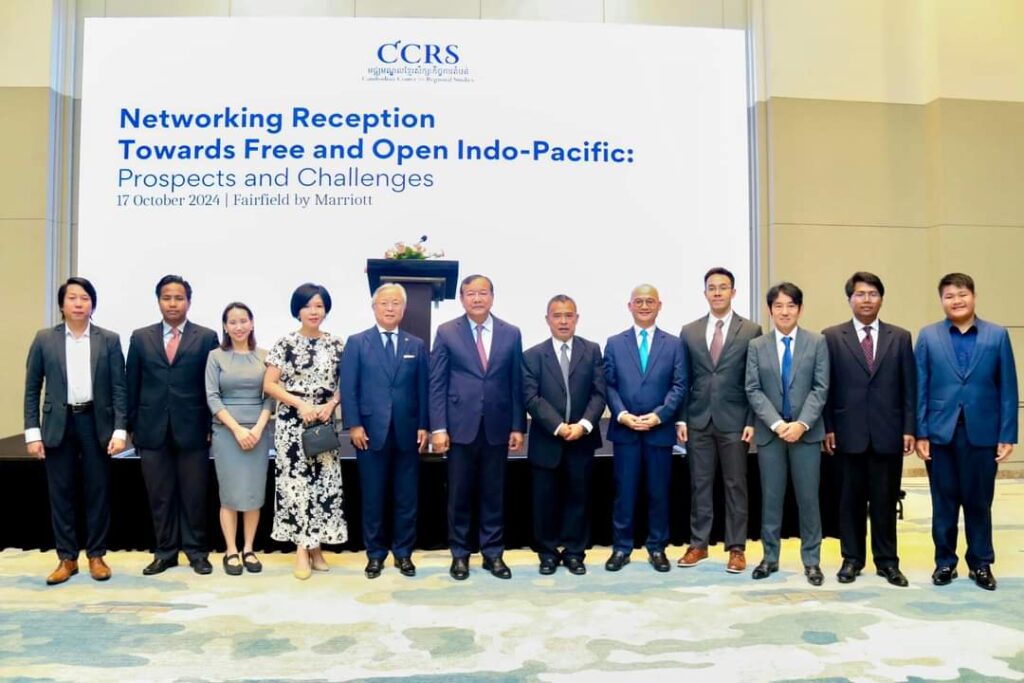
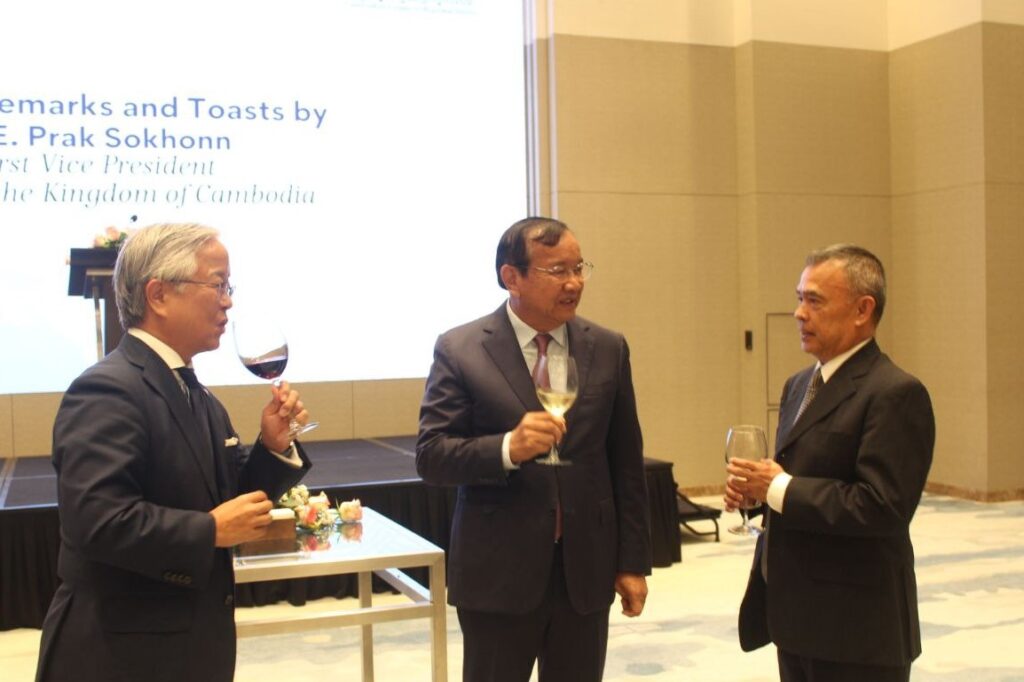
CCRS would like to express deep appreciation to the Japanese Embassy in Cambodia for the valuable support in making this resounding event possible. In addition, our gratitude is extended to honorable guests, role players, and all distinguished participants of the Seminar. CCRS is in the process of compiling the outcome report to capture all the important takeaways. We will post the report in CCRS Website for wider dissemination.
